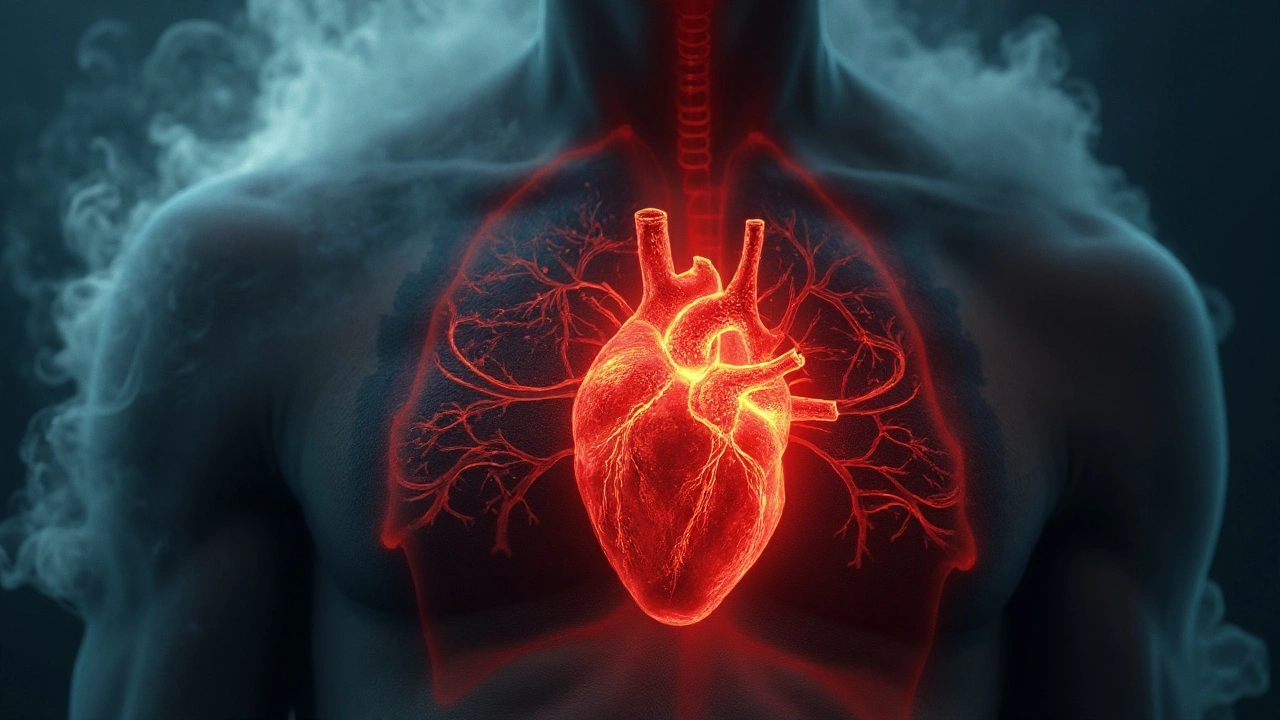Heart Disease: What You Need to Know Right Now
Heart disease worries a lot of people, but the facts are simpler than the headlines make them seem. Most of the damage comes from things you can see and change—high cholesterol, blood pressure spikes, smoking, and a sedentary lifestyle. Below we break down the biggest culprits and point you to practical articles that dive deeper into each topic.
Top Risk Factors You Can Tackle Today
High cholesterol isn’t just a lab number; it fuels the buildup of plaque that narrows arteries. Our post “How Hypercholesterolemia Fuels Metabolic Syndrome” explains how excess cholesterol links to insulin resistance and raises heart attack risk. Cutting saturated fats, adding fiber‑rich foods, and maybe a statin (talk to your doctor) can turn those numbers around.
Blood pressure is another silent driver. Even a slight rise adds strain to heart walls and speeds up artery damage. The “Nebivolol Price Guide” article shows how beta‑blockers can help, but lifestyle tweaks—less salt, regular walks, and stress‑cutting habits—often make a bigger dent without a prescription.
Smoking and drinking together form a dangerous combo. In “Smoking & Alcohol: Why the Combo Is So Dangerous,” we learn that nicotine narrows vessels while alcohol spikes heart rate, creating a perfect storm for clots. Quitting smoking alone cuts heart‑disease risk by half; ditching binge drinking adds extra protection.
Related Conditions and How They Connect to Your Heart
Deep vein thrombosis (DVT) and varicose veins might feel like leg problems, but they share clot‑forming pathways that can affect the heart. The article “DVT and Varicose Veins: How They’re Linked and What to Watch For” highlights compression therapy and movement as key defenses.
Metabolic syndrome ties together high blood sugar, excess belly fat, and the cholesterol issues mentioned earlier. When these pieces stack up, they create a perfect environment for heart disease to develop. Simple changes—swap sugary drinks for water, add a daily 30‑minute walk, and watch portion sizes—can break the cycle.
Even everyday supplements matter. While “Glucosamine Hydrochloride” focuses on joint health, it reminds us to check any new supplement with a doctor, especially if you already take heart meds. Some herbs can interact with blood thinners, so a quick chat with your pharmacist keeps you safe.
Bottom line: heart disease isn’t a mystery you can’t solve. Start with the basics—watch cholesterol and blood pressure, quit smoking, limit alcohol, stay active, and keep an eye on related conditions like DVT. Dive into the individual articles linked on this page for deeper tips and the latest guidance. Your heart will thank you for the effort you put in today.

Sleep Apnea and Cardiovascular Risk: How Snoring Can Raise Blood Pressure and Trigger Heart Disease
Sleep apnea isn't just snoring - it's a silent threat to your heart. Untreated, it raises blood pressure, triggers heart attacks, and doubles stroke risk. Learn how this common sleep disorder is linked to cardiovascular disease - and what to do about it.
More Detail
How Smoking Leads to Heart Disease and Stroke
Explore how smoking drives heart disease and stroke, the biological pathways involved, risk statistics, and what quitting can do for your heart and brain health.
More Detail